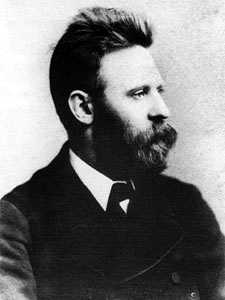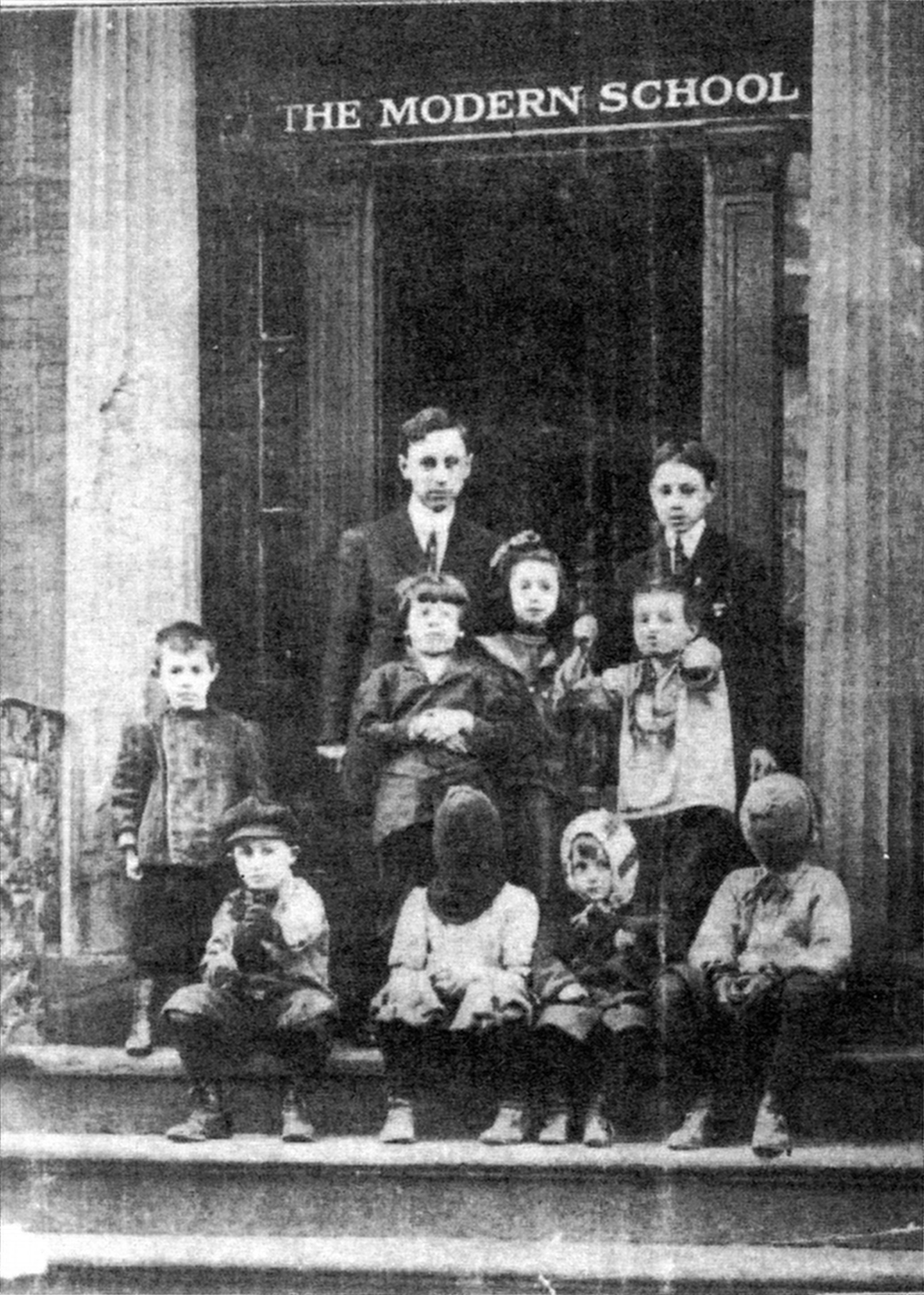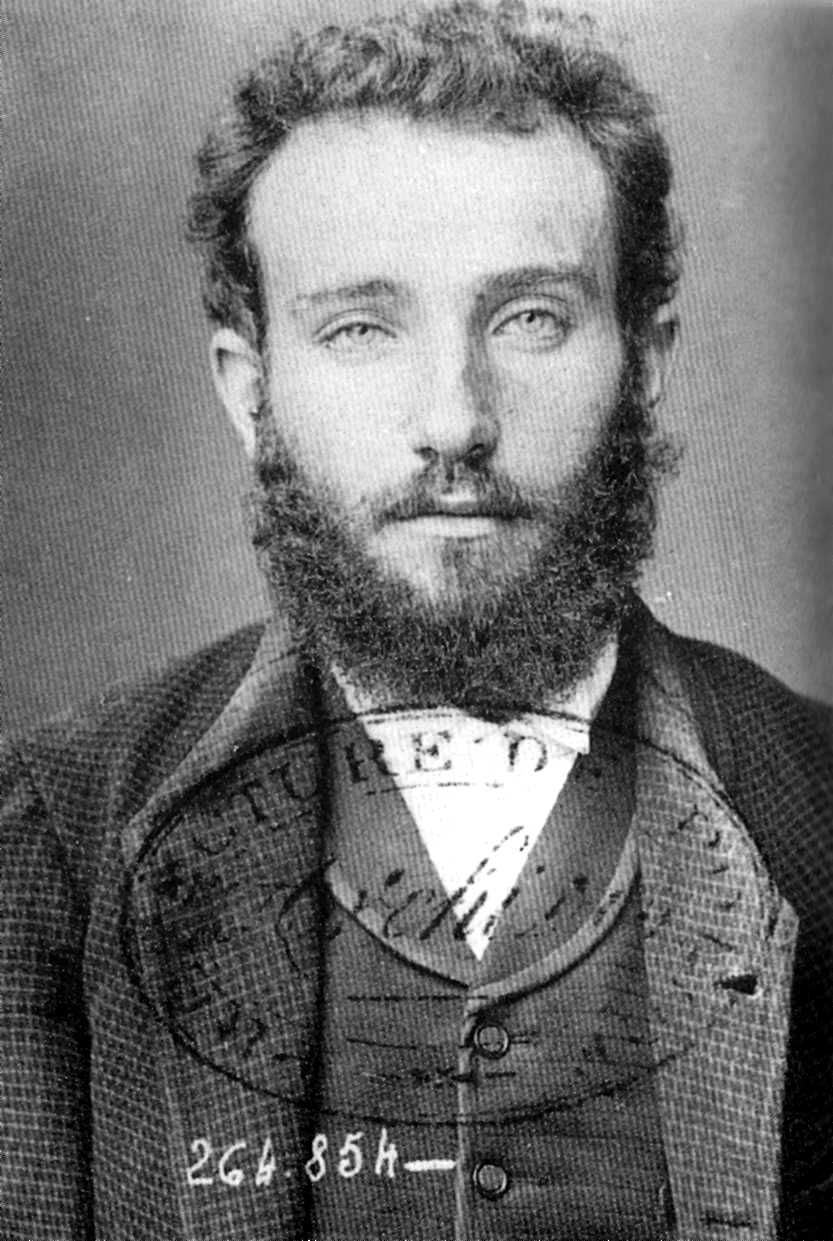|
Illegalism
Illegalism is a tendency of anarchism that developed primarily in France, Italy, Belgium and Switzerland during the late 1890s and early 1900s as an outgrowth of individualist anarchism. Illegalists embrace criminality either openly or secretly as a lifestyle. Illegalism does not specify the type of crime, though it is associated with theft and shoplifting. As left-wing anarchists, the illegalists strongly oppose wage labour and markets. Some anarchists, like Clément Duval and Marius Jacob, justified theft with theories of individual reclamation (''la reprise individuelle'') and propaganda of the deed and saw their crime as an educational and organizational tool to facilitate a broader resistance movement. Others, such as Jules Bonnot and the Bonnot Gang, saw their actions in terms of egoist anarchism and referred to the philosophy of Max Stirner. Influenced by theorist Max Stirner's egoism, some illegalists in France broke from anarchists. They argued that their actions ... [...More Info...] [...Related Items...] OR: [Wikipedia] [Google] [Baidu] |
Individualist Anarchism
Individualist anarchism is the branch of anarchism that emphasizes the individual and their will over external determinants such as groups, society, traditions and ideological systems."What do I mean by individualism? I mean by individualism the moral doctrine which, relying on no dogma, no tradition, no external determination, appeals only to the individual conscience"''Mini-Manual of Individualism''by Han Ryner "I do not admit anything except the existence of the individual, as a condition of his sovereignty. To say that the sovereignty of the individual is conditioned by Liberty is simply another way of saying that it is conditioned by itself. "Anarchism and the State" in ''Individual Liberty'' Although usually contrasted to social anarchism, both individualist and social anarchism have influenced each other. Mutualism, an economic theory particularly influential within individualist anarchism whose pursued liberty has been called the synthesis of communism and property, has ... [...More Info...] [...Related Items...] OR: [Wikipedia] [Google] [Baidu] |
Egoist Anarchism
Egoist anarchism or anarcho-egoism, often shortened as simply egoism, is a school of anarchist thought that originated in the philosophy of Max Stirner, a 19th-century philosopher whose "name appears with familiar regularity in historically orientated surveys of anarchist thought as one of the earliest and best known exponents of individualist anarchism". Max Stirner and his philosophy Max Stirner Johann Kaspar Schmidt (October 25, 1806 – June 26, 1856), better known as Max Stirner (the pen name he adopted from a schoolyard nickname he had acquired as a child because of his high brow, which in German is termed ''Stirn''), was a German philosopher, who ranks as one of the literary precursors of nihilism, existentialism, post-modernism and anarchism, especially of individualist anarchism. Stirner's main work is '' The Ego and Its Own'' (''Der Einzige und sein Eigentum'' in German, which translates literally as ''The Only One and his Property''). This work was first pu ... [...More Info...] [...Related Items...] OR: [Wikipedia] [Google] [Baidu] |
Egoist Anarchism
Egoist anarchism or anarcho-egoism, often shortened as simply egoism, is a school of anarchist thought that originated in the philosophy of Max Stirner, a 19th-century philosopher whose "name appears with familiar regularity in historically orientated surveys of anarchist thought as one of the earliest and best known exponents of individualist anarchism". Max Stirner and his philosophy Max Stirner Johann Kaspar Schmidt (October 25, 1806 – June 26, 1856), better known as Max Stirner (the pen name he adopted from a schoolyard nickname he had acquired as a child because of his high brow, which in German is termed ''Stirn''), was a German philosopher, who ranks as one of the literary precursors of nihilism, existentialism, post-modernism and anarchism, especially of individualist anarchism. Stirner's main work is '' The Ego and Its Own'' (''Der Einzige und sein Eigentum'' in German, which translates literally as ''The Only One and his Property''). This work was first pu ... [...More Info...] [...Related Items...] OR: [Wikipedia] [Google] [Baidu] |
Individual Reappropriation
The following is a list of terms specific to anarchists. Anarchism is a political and social movement which advocates voluntary association in opposition to authoritarianism and hierarchy. __NOTOC__ A :The negation of rule or "government by none". While "anarchy" refers to the absence of a hierarchical society-organizing ''power principle'', "acracy" refers to the absence of ''coercion''; the condition of acracy is one of voluntary order. Derived from the Greek α- oand κρατία ystem of government :A form of organic organization according to which different parts of an organization are temporarily assembled to meet the requirements of that particular point in time. :A small non-hierarchical collective of activists who collaborate on direct action via consensus decision-making. :Coined by Ernst Jünger, this refers to the ruler (i.e. individual) in a state of anarchy analogous to the monarch in a state of monarchy, a conception influenced by Max Stirner's notion of the ... [...More Info...] [...Related Items...] OR: [Wikipedia] [Google] [Baidu] |
Propaganda Of The Deed
Propaganda of the deed (or propaganda by the deed, from the French ) is specific political direct action meant to be exemplary to others and serve as a catalyst for revolution. It is primarily associated with acts of violence perpetrated by proponents of insurrectionary anarchism in the late 19th and early 20th century, including bombings and assassinations aimed at the ruling class, but also had non-violent applications. These deeds were intended to ignite the "spirit of revolt" in the people by demonstrating the state was not omnipotent and by offering hope to the downtrodden, and also to expand support for anarchist movements as the state grew more repressive in its response. In 1881, the International Anarchist Congress of London gave the tactic its approval. Anarchist origins Various definitions One of the first individuals to conceptualise propaganda by the deed was the Italian revolutionary Carlo Pisacane (1818–1857), who wrote in his "Political Testament" (1857) th ... [...More Info...] [...Related Items...] OR: [Wikipedia] [Google] [Baidu] |
Individual Reclamation
The following is a list of terms specific to anarchists. Anarchism is a political and social movement which advocates voluntary association in opposition to authoritarianism and hierarchy. __NOTOC__ A :The negation of rule or "government by none". While "anarchy" refers to the absence of a hierarchical society-organizing ''power principle'', "acracy" refers to the absence of ''coercion''; the condition of acracy is one of voluntary order. Derived from the Greek α- oand κρατία ystem of government :A form of organic organization according to which different parts of an organization are temporarily assembled to meet the requirements of that particular point in time. :A small non-hierarchical collective of activists who collaborate on direct action via consensus decision-making. :Coined by Ernst Jünger, this refers to the ruler (i.e. individual) in a state of anarchy analogous to the monarch in a state of monarchy, a conception influenced by Max Stirner's notion of the ... [...More Info...] [...Related Items...] OR: [Wikipedia] [Google] [Baidu] |
Propaganda Of The Deed
Propaganda of the deed (or propaganda by the deed, from the French ) is specific political direct action meant to be exemplary to others and serve as a catalyst for revolution. It is primarily associated with acts of violence perpetrated by proponents of insurrectionary anarchism in the late 19th and early 20th century, including bombings and assassinations aimed at the ruling class, but also had non-violent applications. These deeds were intended to ignite the "spirit of revolt" in the people by demonstrating the state was not omnipotent and by offering hope to the downtrodden, and also to expand support for anarchist movements as the state grew more repressive in its response. In 1881, the International Anarchist Congress of London gave the tactic its approval. Anarchist origins Various definitions One of the first individuals to conceptualise propaganda by the deed was the Italian revolutionary Carlo Pisacane (1818–1857), who wrote in his "Political Testament" (1857) th ... [...More Info...] [...Related Items...] OR: [Wikipedia] [Google] [Baidu] |
Marius Jacob
Alexandre Marius Jacob (September 29, 1879 – August 28, 1954), also known by the names Georges, Escande, Férau, Jean Concorde, Attila, and Barrabas, was a French anarchist illegalist. Biography Jacob was born in 1879 in Marseille to a working-class family; his father, Joseph, was a baker. At the age of eleven, he signed up as a sailor's apprentice; he would later say, "I have seen the world; it is not beautiful". Back in Marseilles, on March 31, 1899, he stole from a pawn shop, his first action as an illegalist. He was later arrested in Toulon and faked insanity to avoid five years of prison. On April 19, 1900, he escaped from the Montperrin asylum in Aix-en-Provence with the assistance of a male nurse, Royère, and took refuge in Sète. There he organized a band of men, calling them "the workers of the night." The principles were simple: one does not kill, except to protect his life and his freedom from the police. A percentage of the stolen money was to be invested into ... [...More Info...] [...Related Items...] OR: [Wikipedia] [Google] [Baidu] |
Anarchism
Anarchism is a political philosophy and movement that is skeptical of all justifications for authority and seeks to abolish the institutions it claims maintain unnecessary coercion and hierarchy, typically including, though not necessarily limited to, governments, nation states, and capitalism. Anarchism advocates for the replacement of the state with stateless societies or other forms of free associations. As a historically left-wing movement, usually placed on the farthest left of the political spectrum, it is usually described alongside communalism and libertarian Marxism as the libertarian wing (libertarian socialism) of the socialist movement. Humans lived in societies without formal hierarchies long before the establishment of formal states, realms, or empires. With the rise of organised hierarchical bodies, scepticism toward authority also rose. Although traces of anarchist thought are found throughout history, modern anarchism emerged from the Enlig ... [...More Info...] [...Related Items...] OR: [Wikipedia] [Google] [Baidu] |
L'Anarchie
''L'Anarchie'' (, ''anarchy'') was a French individualist anarchist journal established in April 1905 by Albert Libertad. Along with Libertad, contributors to the journal included Émile Armand, André Lorulot, Émilie Lamotte, Raymond Callemin, and Victor Serge). The magazine was based in Paris. 484 editions were published between 13 April 1905 and 22 July 1914. On 21 April 1926 Louis Louvet relaunched ''L'Anarchie'', which appeared until 1929. Founding L'Anarchie was founded by Albert Libertad in 1905, with the first issue appearing on April 13. Libertad was a more militant anarchist, urging individuals to rebel, instead of the more common idea of a social revolution. L'Anarchie was against Anarcho-syndicalism and the traditional anarchism of Kropotkin or Bakunin, believing in the act of rebelling as individuals rather than the utopian egalitarian society most Anarcho-Syndicalists fight for. Émile Armand said in an interview that " ibertadknew of Stirner and Nietzsche ... [...More Info...] [...Related Items...] OR: [Wikipedia] [Google] [Baidu] |
Albert Libertad
Joseph Albert (known as Albert Libertad or Libertad) (24 November 1875 – 12 November 1908) was an individualist anarchist militant and writer from France who edited the influential anarchist publication ''L'Anarchie''. Life and work He was born in Bordeaux, and died in Paris. Abandoned by his parents as a baby, Libertad was a child of the Public Assistance in Bordeaux. As a result of a childhood illness, he lost the use of his legs, but put his handicap to good use, using his crutches as weapons against the police. He moved to Paris at 21, where he soon became active in anarchist circles, going so far as to live in the offices of the journal "Le Libertaire." A member of various anarchist groups, and a supporter of "propaganda by the deed," he was nevertheless an abstentionist candidate in Paris's 11th arrondissement in 1902 and 1904, seeing his candidacy as a means of spreading anarchist ideas. During the Dreyfus affair, he founded the Anti-Militarist League (1902) "and, along wi ... [...More Info...] [...Related Items...] OR: [Wikipedia] [Google] [Baidu] |






.jpg)

